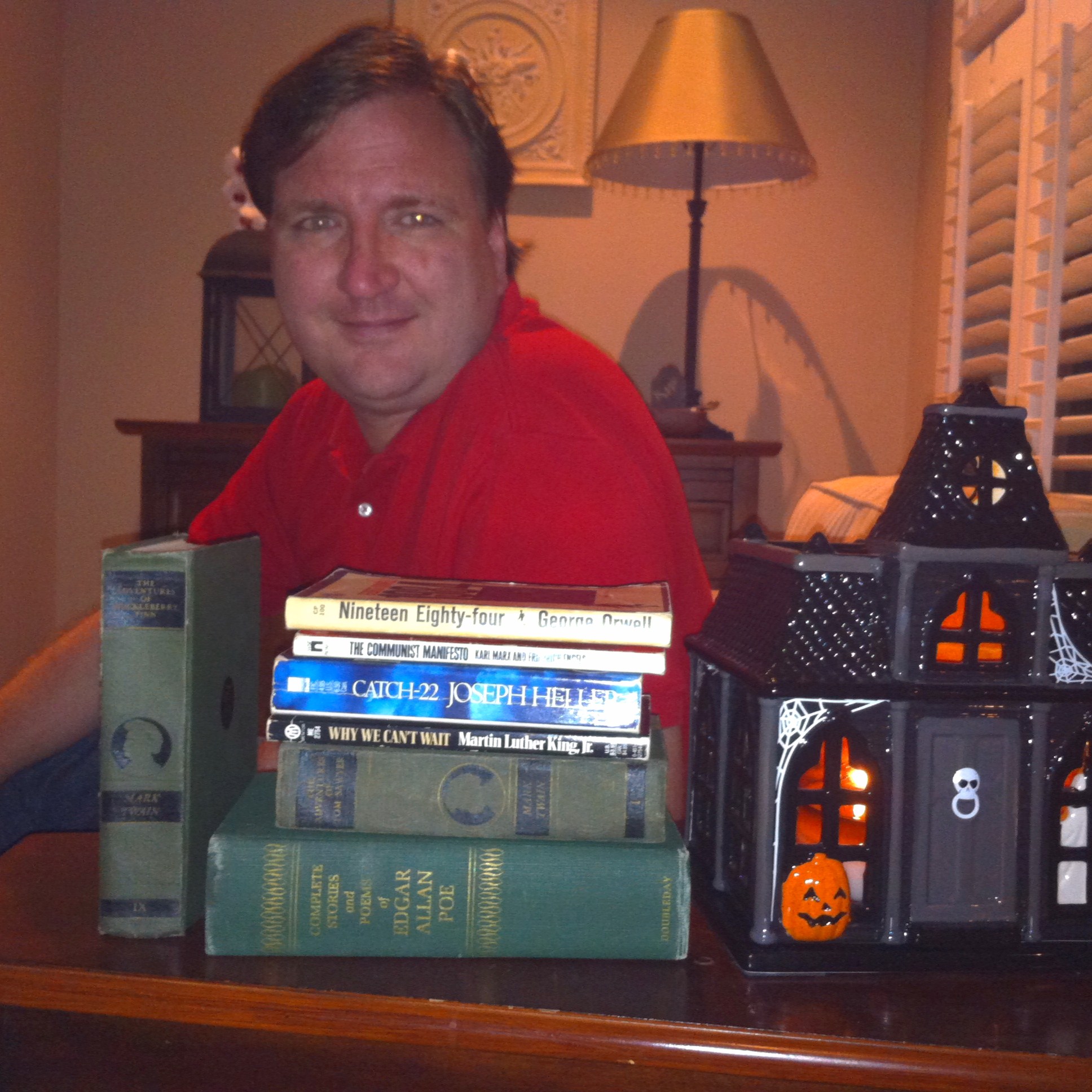The Wrongness Allure of Banned Books

by Paul Stankus
I knew it was wrong, but I read it anyway. The wrongness all the more alluring to a pre-teen mind.
While my own parents were supportive of my voracious reading habits, society around me was not—and the newspapers sprang with stories about bad books that should not be read—Chaucer’s “Canterbury Tales,” Steinbeck’s “Of Mice and Men,” Crane’s “Red Badge of Courage”—all on the list of banned books. I sought out each of them in turn from the local library, carefully slipping into my stack to check out, lest anyone thought the worse of me, and quietly reading it after dark under the covers by flashlight when I should have been sleeping. Each of them contributed to my writing style: from Chaucer, I adapted the rhyming prose, sometimes slightly ribald in its theme, to sprinkle among my own poetry; from Steinbeck, that the best characters like Lennie are flawed in their own way, creating pathos that bring the reader in; from Crane’s “Red Badge,” the horrors and brutality of war and the false bravado that papers over.
Yet, of all the banned books I read throughout the years, my favorites are still Mark Twain’s “Tom Sawyer” and “Huckleberry Finn,” of which I had read the children’s (cleaned up) version several times and vowed to read the full version later on. Robbers, cheats, con men. Injun Joe, Aunt Polly, gold, river rafting, convincing others to do your chores—all fascinating adventures for a small boy. Little did I know that at age 11 I would find a treasure more valuable than gold—a complete set of Mark Twain’s novels from an elderly aunt—and that has set my compass to writing for these many years.
I glanced through my shelves and lo, I found a book on the banned list I hadn’t read before. Tonight I’m going to read Joseph Heller’s “Catch-22” under the covers. Read your own banned book tonight—its wrongness may yet work its way into your soul.
Gaithersburg Book Festival committee member Paul A. Stankus is a poet, short story writer and author of three books, including his first children’s book, “The Ripple of a Lie,” a visual representation of the effects of playground gossip and lies. Paul turned nearly 250 short stories about his experiences as a new father into his book, “Dad Desperately In Need of Training Wheels,” while commuting daily in the last car of the DC Metro train. Paul currently has several writing projects in the works, including a book of poetry, and an 18th century pirate trilogy. He balances his time writing with a daytime gig wrangling federal funds for schools. Mostly he does it for the children—but it also pays for his writing vices.


